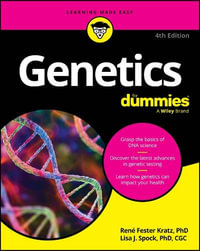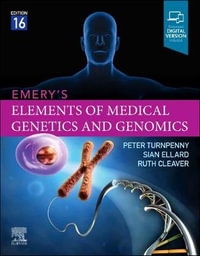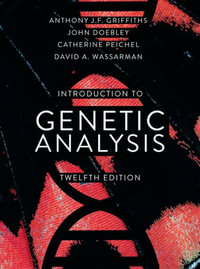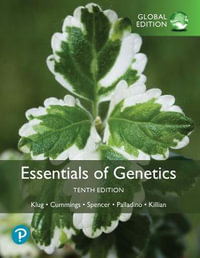Part1: GENETIC CAUSES AND ASSOCIATED PHENOTYPES- Lynch syndrome.- The molecular basis of Lynch-like syndrome.- Constitutional mismatch repair deficiency.- Mismatch repair proficient hereditary non-polyposis colorectal cancer.- Genetic and environmental modifiers of risk in Lynch syndrome.- ADENOMATOUS POLYPOSIS SYNDROMES- Introduction.- Familial adenomatous polyposis.- Polymerase proofreading-associated polyposis.- MUTYH-associated polyposis.- NTHL1-associated polyposis.- Germline biallelic inactivation of MMR genes (with polyposis phenotype).- Unexplained adenomatous polyposis.- HAMARTOMATOUS POLYPOSIS SYNDROMES- Peutz-Jeghers syndrome.- Juvenile polyposis syndrome.- PTEN-hamartoma tumor syndromes.- Other hamartomatous polyposis conditions.- HEREDITARY MIXED POLYPOSIS SYNDROME.- SERRATED POLYPOSIS SYNDROME.- Part2: GENETIC DIAGNOSTICS and CLINICAL MANAGEMENT.- Genetic testing in hereditary colorectal cancer.- Universal tumor screening for Lynch syndrome.- Classification of genetic variants. Prediction models for Lynch syndrome.- Surveillance guidelines for hereditary colorectal cancer syndromes.- Surgical management of hereditary colorectal cancer syndromes.- Chemoprevention in hereditary colorectal cancer syndromes.- Immunotherapy in hereditary colorectal cancer.- The Immune Biology of Microsatellite Unstable cancer.- Hereditary colorectal cancer: Immunotherapy approaches.- Medical oncology management of hereditary colorectal cancer. Part3: REGISTRIES and DATABASES.- Databases: intentions, capabilities and limitations.- The Colon Cancer Family Registry Cohort.- The Prospective Lynch Syndrome Database.- The InSiGHT Database: An example LOVD system.- The International Mismatch Repair Consortium.
Industry Reviews
"This unique book is designed as a consultative source for individuals involved in the care of patients with colorectal cancer and patients at risk due to familial genetic testing. ... Genetics counselors, medical geneticists, surgeons, and oncology specialists would find this book extremely useful. ... One of the most impressive features of this book is the very useful abstract at the beginning of every chapter. ... At the end, there is a section of registries and databases, extremely useful tools." (Luis F. Escobar, Doody's Book Reviews, October, 2018)â
























